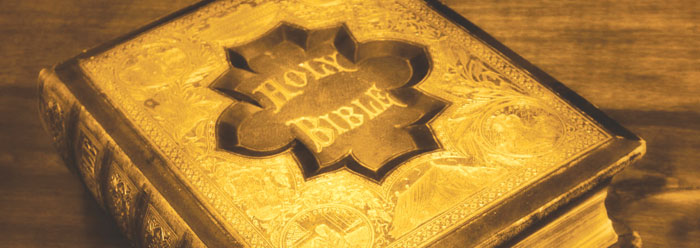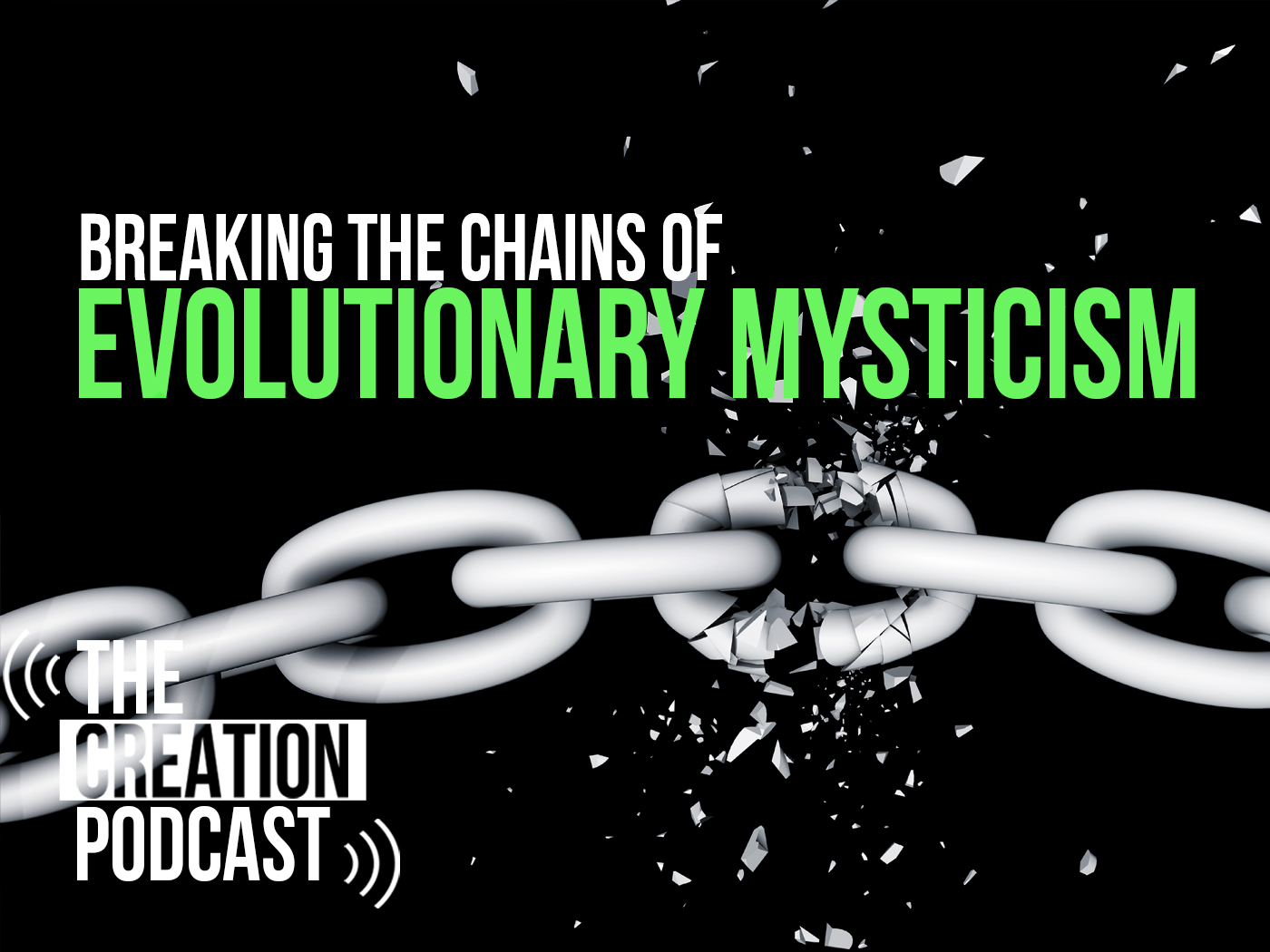There is a wonderful promise found in one of David's psalms, as follows:
The words of the Lord are pure words: as silver tried in a furnace of earth, purified seven times. Thou shalt keep them, O Lord, thou shalt preserve them from this generation for ever (Psalm 12:6-7).
These pure words of God were conveyed to men through David and Moses and Paul and the other authors of the books of the Bible. But that was a long time ago, and the original manuscripts are apparently long gone, so just how did the Lord intend to preserve those words from that generation forever?
Furthermore, He frequently issued serious warnings against changing any of these words. For example, Moses wrote:
Ye shall not add unto the word which I command you, neither shall ye diminish ought from it, that ye may keep the commandments of the Lord your God which I command you (Deuteronomy 4:2).
Many years later, in the Proverbs God inserted a further warning:
Every word of God is pure: He is a shield unto them that put their trust in Him. Add thou not unto His words, lest He reprove thee, and thou be found a liar (Proverbs 30:5-6).
At the very end of the Bible, of course, is found the extremely grave warning through Christ's beloved disciple John:
For I testify unto every man that heareth the words of the prophecy of this book, If any man shall add unto these things, God shall add unto him the plagues that are written in this book: And if any man shall take away from the words of the book of this prophecy, God shall take away his part out of the book of life, and out of the holy city, and from the things which are written in this book (Revelation 22:18-19).
God was indeed dead serious when He assured David (and all of us!) that He would preserve His pure words forever! Remember also that the Lord Jesus Himself said:
For verily I say unto you, Till heaven and earth pass, one jot or one tittle shall in no wise pass from the law, till all be fulfilled (Matthew 5:18).
And He also insisted that "the scripture cannot be broken" (John 10:35).
We believe our Bible comprises these divine words as they have come down to us. However the problem is that none of these original prophetic writings (the so-called "autographs") are still available, and no one can really verify that any of the handwritten copies we now have are exactly as originally written.
The transmission through many centuries of the books of the Bible is a fascinating saga of God's providential care of His words. The Old Testament writings were given first in Hebrew, then meticulously copied and re-copied by many scribes, finally to be edited into their present form by the Masoretes, all before the invention of the printing press.
The New Testament books were first written in the so-called Koine Greek. These also, originally written by Paul, Peter, and other apostles, were soon being copied and circulated all over the Christian world. It was not surprising that many variations (usually…but not always…very minor) crept into these copies. Also, both Old and New Testament books began to be translated and circulated in other languages…Latin, Syrian, Coptic, etc.…and these also had variations. All in all, however, the vast majority were really intended to be faithful copies and/or translations of the originals. Since there are several thousand of these hand-copied manuscripts of all or parts of the Bible still extant, various textual scholars have been able to reproduce with considerable accuracy the original text of both the Hebrew and Greek portions of the Bible. There are still, however, a fair number of variations even in these different collations. Furthermore, the Bible now has also been translated into thousands of different modern languages.
So how do we know which one…if any…contains the exact words which God promised to preserve?
As far as our English language is concerned, it did not even exist as such at the times the Bible books were being written. However, the Bible or portions of it were available in the many pre-English languages in use in England very soon after the Roman conquest. The development of modern English gradually took place from these earlier tongues and by the time of our familiar King James Authorized Translation (1611), it was very much like today's English.
In fact, it is interesting to note that the so-called Bishop's Bible, which preceded the King James and was widely used for many years before the latter, contained language much more like today's English than did the later King James itself.1 The "learned men" selected by King James to produce the Authorized Version, were specifically instructed to produce a version which would not only be literally accurate but would also "sing" with poetic prose which would be easier to memorize and have a more powerful spiritual impact. That they were notably successful in these efforts has been proved by almost four centuries of widespread acceptance and use throughout the English-speaking world.
But all translations, including even the King James are imperfect. None of these scholars were quite like the "holy men of God" who were supernaturally endowed in various ways to write the original autographs and who therefore "spake as they were moved by the Holy Ghost" (II Peter 1:21). At least the Bible nowhere says they would be so endowed and careful evaluation of each modern translation surely confirms that they are all less than perfect.
I have some forty or so translations myself and profit by studying them, but am personally satisfied that the old King James is still the most reliable and most nearly literally accurate, as well as the most beautiful and spiritually powerful.
I could wish it were still accepted as the standard.
But it is definitely not perfect. There are a number of points where its translation could have been better…at least in my judgment.2
But did not God say that He would preserve all His pure words, and do so forever? If so, many would ask, where is it? Where can we read these perfectly preserved words?
Well, God has clearly answered this good question! "For ever, O Lord, thy word is settled in heaven" (Psalm 119:89). This great affirmation is surely one of the key verses of the Bible…right at the middle of its longest chapter, that amazing psalm of 176 verses, with its 176 affirmations extolling the Holy Scriptures.
God is undoubtedly keeping all His pure words intact in heaven. Just possibly the original manuscripts…long vanished from the earth…are being kept in the Ark of God's Covenant, like the original tables of the law were kept while the Ark was in the wilderness tabernacle (Hebrews 9:4).
That Ark, incidentally also has…like the autographs…seemingly vanished from the earth. When Nebuchadnezzar destroyed Solomon's Temple, he carried all its treasures away to Babylon, (II Chronicles 36:18), but these evidently did not include its most valuable treasure, the Ark of the Covenant.
I believe that the Ark of God's Covenant (like Elijah) was taken by angels directly to heaven for safekeeping, wherein perhaps the divine originals…if not the earthly transcriptions…could be kept "for ever settled in heaven." When one is a "naïve literalist" like myself, he cannot help but note that John actually saw in the heavenly temple "the ark of His testament" (Revelation 11:19), so perhaps it is really there.
In any case, God's Word is there in heaven preserved in its entirety somewhere. Even though textual scholars may not yet have been able to reproduce all the original autographs word perfect, they have been able to come very close by analyzing the thousands of hand copies left by the copyists here on Earth. Conservative scholars have made a strong case that the Masoretic Hebrew text and the Greek Textus Receptus (or something very similar) are so close to the originals that we can use any literal translation based on them (such as the King James) with confidence that it is essentially the actual written Word of God, while yet allowing the possibility here and there of occasional copyist errors or inadequate translations…which can often be resolved and corrected by further study.
The Scriptures also promise that, in the future, God will "turn to the people a pure language, that they may all call upon the name of the Lord, to serve Him with one consent" (Zephaniah 3:9). Whether this "pure language" will be Hebrew or the language of Adam or something else (English?), we don't know.
Whatever it is, we shall surely at that time have available the "forever settled" Word of God in that language, so that all who are there in that wonderful coming age can then indeed "call upon the name of the Lord, to serve Him with one consent."
Endnotes
- Gail Riplinger, In Awe of Thy Word, (A.V. Publications Corp., 2003),
pp. 206-224. - For example, the KJV translates the Hebrew male in Genesis 1:28 as "replenish" instead of its normal meaning "fill," thus allowing compromisers to accept pre-Adamites, the geological ages, and even evolution. There are a number of such unfortunate word choices, but these are rare.




























